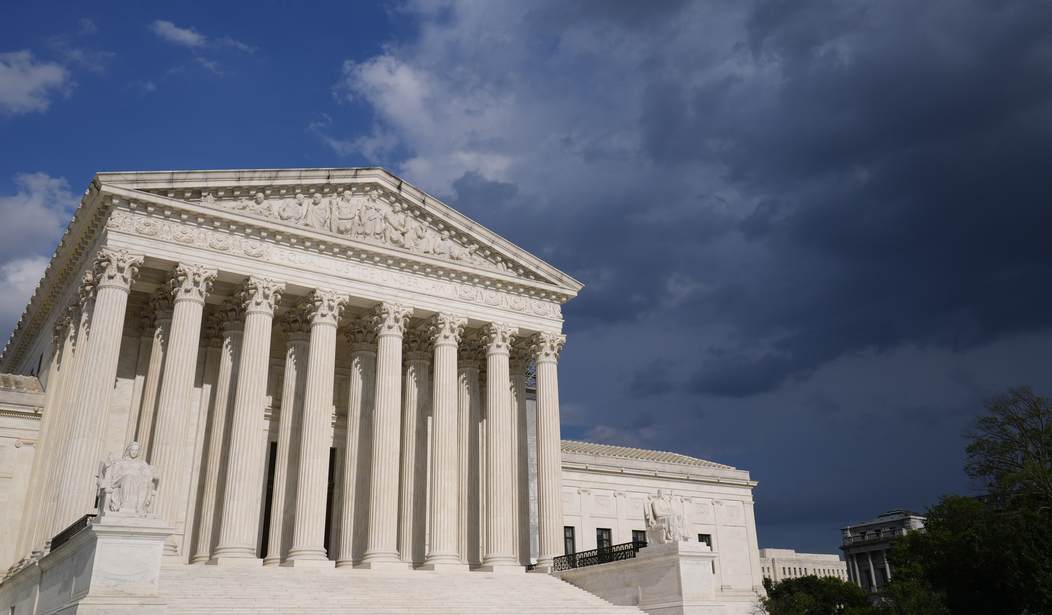In 2017, Erwin Chemerinsky, dean of the UC Berkeley School of Law, penned an op-ed for the William & Mary Law Review in which he fiercely defended "judicial supremacy," writing in part that the U.S. Supreme Court should be viewed as the authoritative interpreter of the U.S. Constitution and as such, we should deem its decisions as binding on the legislative and executive branches, and all levels of government.
Now, in response to claims from the left and others that President Donald Trump violated the Constitution by allegedly ignoring an order from U.S. District Court Judge James Boasberg to halt the deportation to El Salvador of members of the violent Venezuelan Tren de Aragua gang over the weekend, The Federalist Senior Editor John Daniel Davidson argues that Trump didn't "ignore" the order, but even if he had he would have done so constitutionally.
Contrary to the false claims of the corporate press, the Trump administration didn’t defy Boasberg and ignore his order. It simply recognized that once the alleged terrorists had been removed from U.S. territory, the federal courts no longer had jurisdiction and could not issue orders concerning them.
However, by asserting this much, the Trump administration signaled that it doesn’t accept the judicial supremacist view that Boasberg can dictate White House policy from the federal bench, much less order U.S. military aircraft to turn around mid-flight.
"This myth," wrote Davidson about judicial supremacy, "needs to be rejected."
While I'm neither a constitutional scholar nor a law school professor, I do have the ability to look at both sides of an argument objectively when appropriate to do so and respond objectively — often to the chagrin of one side or the other.
Let's begin by reviewing the goings-on with Trump's deportation order, Judge Boasberg's temporary restraining order, and Team Trump's "blistering" motion in response.
On Saturday, Trump carried through with his threat to invoke the Alien Enemies Act of 1798, a wartime authority that allows the president to detain or deport the citizens of an enemy nation. The law also allows the president to target such immigrants without a hearing and based only on their country of birth or citizenship.
In Trump's case, he specifically referred to the "Invasion of the United States by Tren de Aragua (TdA)." Part of Team Trump's argument is the administration's designation of TdA as a Foreign Terrorist Organization, as well as its affiliation with the Venezuelan government.
At a Saturday afternoon hearing, Judge Boasberg not only issued a temporary restraining order preventing the deportation of any of those subject to Trump's proclamation who might be on either of two planes; he also essentially ordered the planes to return to the U.S. — along with the gang members.
ALSO READ:
It's ON - President Trump Invokes Alien Enemies Act, Targets Notorious South American Gang
Activist Nation: Judge Orders Plane Carrying Gangsters Kicked Out by Trump to Turn Around
In a fiery response to Boasberg's orders, Trump administration lawyers filed a "blistering" motion in federal court on Monday, demanding that Boasberg and the ACLU stop interfering with Trump's presidential authority. The motion reads, in part:
Plaintiffs cannot use these proceedings to interfere with the President’s national-security and foreign-affairs authority, and the Court lacks jurisdiction to do so. ... the Court should vacate the hearing and de-escalate the grave incursions on Executive Branch authority that have already arisen.
[...]
As to any flights that were already outside U.S. territory and airspace, anyone aboard had already been “removed” within the meaning of the Alien Enemies Act and the Court’s order, and therefore were not covered by the order.
This brings us back to the notion of judicial supremacy.
As Davidson wrote:
For far too long, we have accepted without question the fallacious notion that the federal judiciary has the exclusive power of constitutional interpretation, and that the states and the other branches of the federal government are bound to accept whatever the courts decide.
Perhaps there was a time in U.S. history when the judiciary did have exclusive power with little question, but with the arrival of Donald Trump on the national political stage in June 2015, as he and Melania rode down the golden escalator in Trump Tower and announced he was running for president, the left attacked; first resorting to promoting Russian "collusion" hoaxes and other such nonsense, before later relying on blatant lawfare in various desperate attempts to destroy Trump — or at least remove him from the political stage.
And as I write, Trump Derangement Syndrome has only gotten worse, with the Democrat Party and its left-wing media sock puppets continuing to prove that hatred of Trump is more important to them than love of country.
My point is this:
The notion that judicial supremacy is sacrosanct is no longer unquestionable; that ship has sailed — thanks to courts and judges whose decisions smack only of predisposed political bias against Donald Trump and all things conservative.













